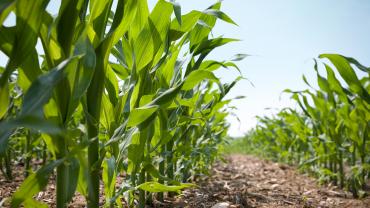
Nondigestible carbohydrates are compounds that do not undergo the normal process of digestion in the small intestine. When entering the colon, nondigestible carbohydrates are available as a fermentation substrate for the gut microbiota. Due to this process, they are believed to facilitate changes in the gastrointestinal microbiome. Disturbances in the gut microbiome, commonly referred to as dysbiosis, may be related to aging, nutrient intake, or other factors. Dysbiosis has been linked with age-associated functional decline and certain pathological conditions.
Arabinogalactan is a proteoglycan classified as a nondigestible carbohydrate that may influence the composition of the gut microbiome. Arabinogalactan is found in many plants, including beans, pears, corn, and certain grains. Larch (Larix laricina) is a common source for commercially available arabinogalactan supplementation.
A recently published randomized, double-blind, crossover, placebo-controlled study assessed the impact of supplementation with arabinogalactan on certain biomarkers related to the gut microbiome. The study involved two 6-week interventional periods with a 3-week washout period in between. The treatment arm involved supplementation with 15 g of arabinogalactan daily. Dose selection was intended to ensure the daily recommended intake of dietary fiber for American adults. Gut microbiome markers were assessed at week 3 and at week 6 for each intervention period.
This study analyzed the abundance of Firmicutes and Bacteroidetes phyla populations as indicators of the gut microbiome composition. During the aging process, the relative abundance of Firmicutes tends to increase, whereas the Bacteroidetes populations decrease. The ratio between these populations tends to increase with age and may be a useful measurement in research. The ratio between the Firmicutes and Bacteroidetes populations in the treatment arm of this study were shown to be significantly lower at both week 3 and week 6. This study also observed a tendency for an increase in Bifidobacterium in the treatment arm. Of note, this study was relatively short with a small sample size. The authors reported that the study participants were healthy adults with potentially healthy microbiomes, which may be a factor in observed changes during the treatment phase.
In previous studies, Lactobacillus species have been observed to increase in the presence of nondigestable carbohydrate supplementation. However, these studies did not show a statistically significant finding.
There is still much to be discovered regarding potential changes in the gut microbiome in the presence of nondigestible carbohydrates, such as arabinogalactan. Further research is warranted to confirm that arabinogalactan may influence certain populations in the gut microbiome.
By Colleen Ambrose, ND, MAT